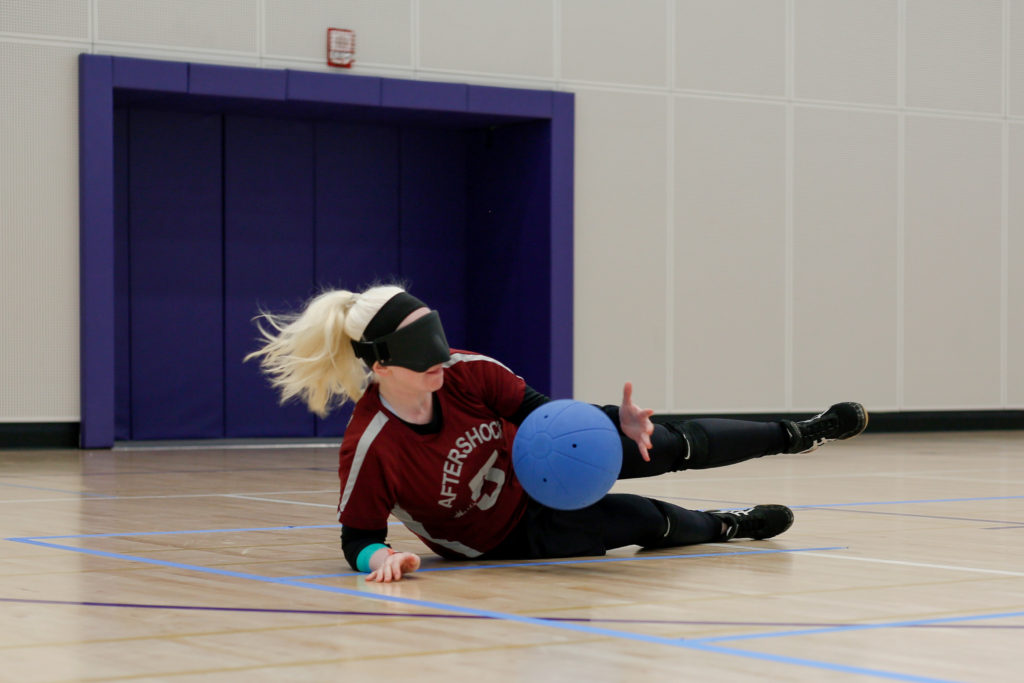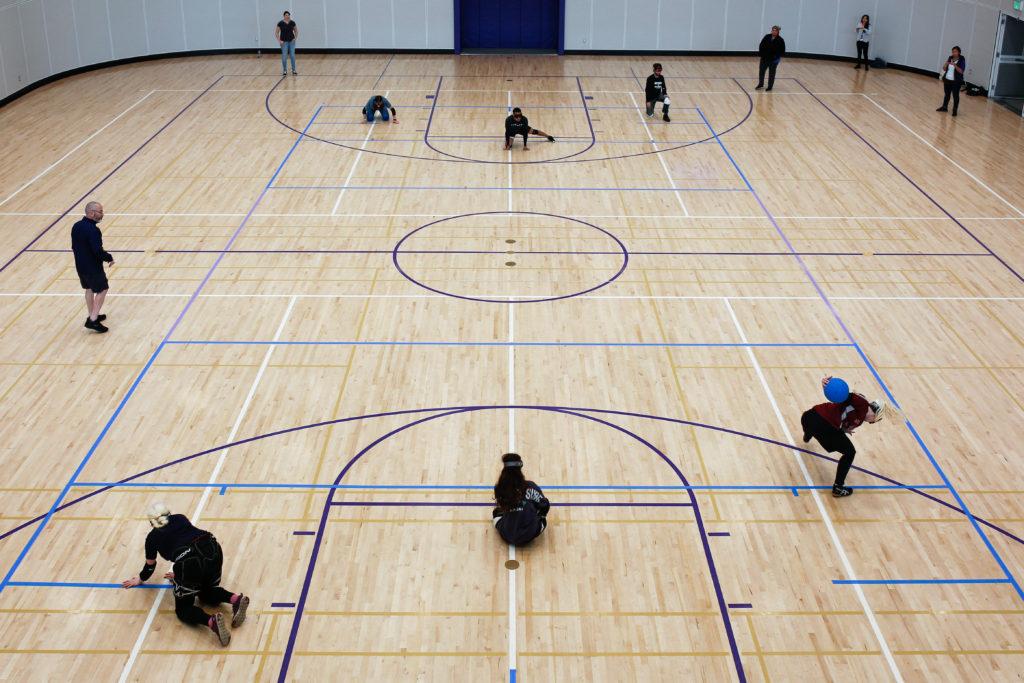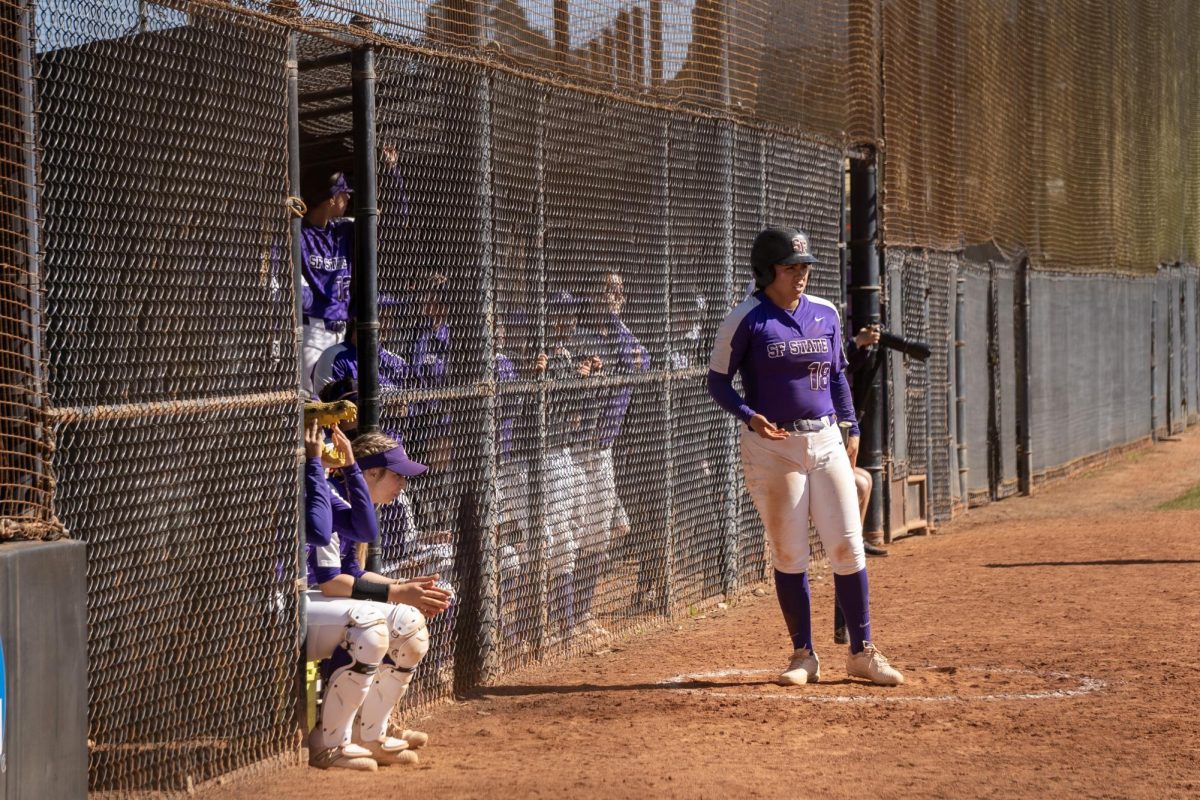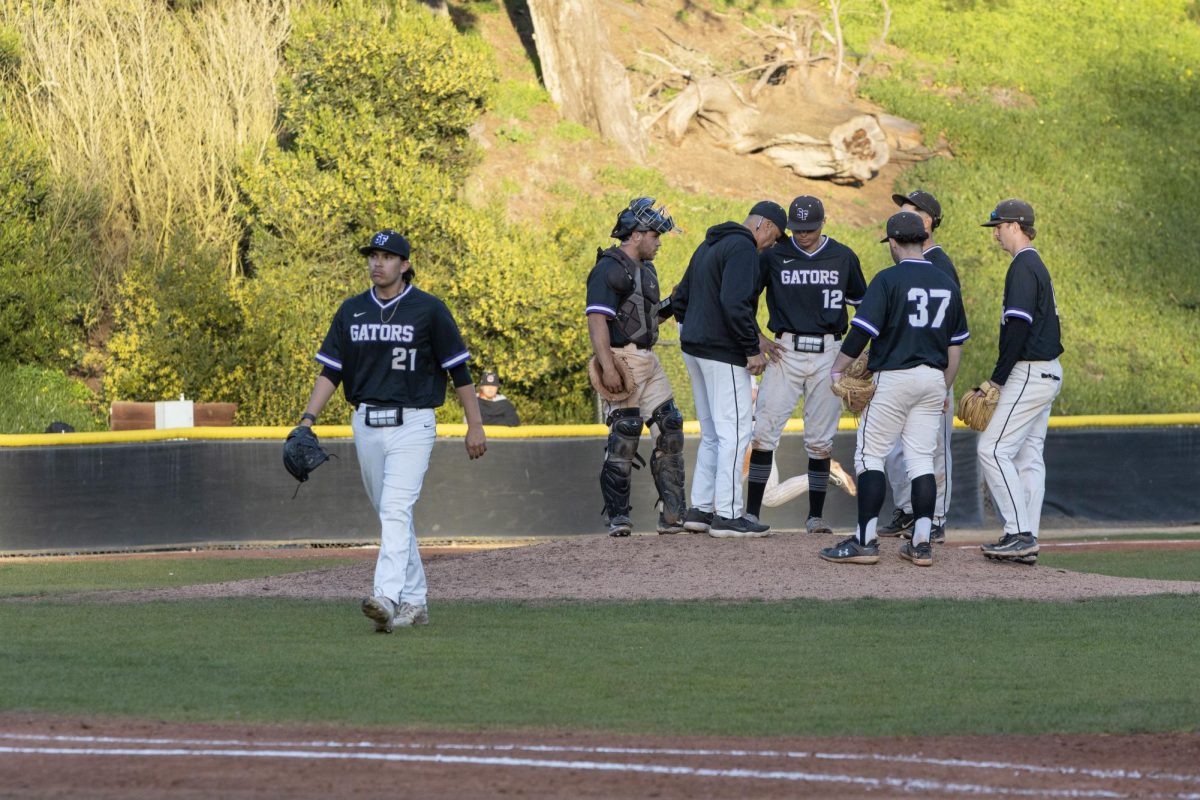Sometimes the removal of sight can provide a glimpse into a misunderstood world.
Danny Vang sure thinks so.
Vang, a social work major who is partially blind, wanted to introduce an activity to his campus that would help people better understand the blind community. Goalball was his method of choice, and the Mashouf Wellness Center’s basketball court served as the playing surface.
“Goalball is a sport where athletes who are blindfolded use their touch and sound to navigate around a court and throw a ball into their opponent’s goal,” Vang explained. “But one problem is, you have to block it with your body, which can be very painful at times.”
Utilizing a dodgeball with bells inside, three players position themselves in front of a net on both baselines of a court. The offense throws the ball in dodgeball-pitching style, and the three defensive players must lay out horizontally to try to block the throw, using their hearing to detect the ball’s direction.

After the seasoned goalball players got through a few games, the spectators received hands-on lessons from them and got to play some games themselves.
Ting Siu, an assistant professor at SF State and a coordinator for the University’s graduate and teaching credential program in visual impairments, was one of the new participants. “It was really disorienting,” Siu said. “I had a hard time figuring out the direction of where things were just using my ears.”
Vang was inspired after taking a goalball course at University of California, Berkeley. He said the course attracted members of the school’s swimming, rugby and basketball teams, which he said created an interesting dynamic.
“The people who were blind sort of clumped together, the people who were sighted sort of clumped together,” Vang said. “As we got to know each other, as we started to play on a team, you saw those two groups come together.”
Vang not only wanted to recreate that on-court camaraderie at SF State, but he also sought to address any misconceptions about how people with various forms of blindness live and think.
Once the playing ceased, the discussion commenced.
Ann Wai-Yee Kwong, Joshua Aveno and Julie Cabrera discussed their blindness with the event’s attendees. They made sure to address the misconceptions that plague the blind community and they gave insight into how to properly associate with blind people.
“Society has a very rigid view of blindness, where you’re either totally 20/20 vision normal, or totally blind and need every type of help,” said Kwong, a transition program specialist at the Lighthouse for the Blind and Visually Impaired.
“I think one of the biggest misconceptions I’ve seen is that people with disabilities are not able to live active and fulfilling lives,” said Cabrera, a Spanish major. “People with disabilities live a lot of experiences that most folks haven’t
taken the time to look at, because it’s not something they run into on a daily basis. And they seem very surprised by very commonplace things.”
Aveno, who works at the Center for Independent Living, believes that most people, regardless of how good their intentions are, don’t understand how to interact with blind people. He said his father finally realized a few years ago that overprotection was not what his son wanted. “My dad is always telling my mom, ‘Just let him do his thing,’” Aveno said.
“As Ann said, you know yourself best, and you know to what degree you’re capable of,” Cabrera said. “But a lot of people have this set standard that is surprisingly and depressingly low.”
“I think with the whole issue of low expectations, one of the biggest challenges I had to overcome was stepping out of my comfort zone,” Kwong said. “I was very glad my family members let go and let me fail, within reason, so that I can build that resilience. I think that’s really important.”
Cabrera credited her high school TVI (teacher for the visually impaired) with instilling a lot of confidence in her and pushing her to test her limits, which almost no one had really done until that point.
“[She] went the extra thousand miles to make sure that I would not only keep up with my peers, but that I would excel. And that failure is not the end-all, be-all,” she said. “She put me in touch with so many resources, and even though I was too afraid to take hold of them while I was in high school, it set the groundwork for me to finally reach out for them after high school.”
The panel spoke about how they maintain positive mindsets, and gave advice for how to treat and interact with blind people.
“Going through things with confidence,” Aveno said. “That doesn’t mean you’re not gonna be scared to do something, but you’re confident there’s a way to get it done.”
“The person that has that lived experience is the expert. Trust them,” Kwong said. “If they say they need help, you can help. And if they say, ‘I’m fine, thank you so much,’ you leave them alone.”










Danny Thomas Vang • May 11, 2018 at 1:39 pm
I think that Gabriel Agurcia did an excellent job capturing the voices of the panelists at the goalball event. His willingness to learn about a new culture and to dispel any myths about blindness is much appreciated. #Gator Goalball